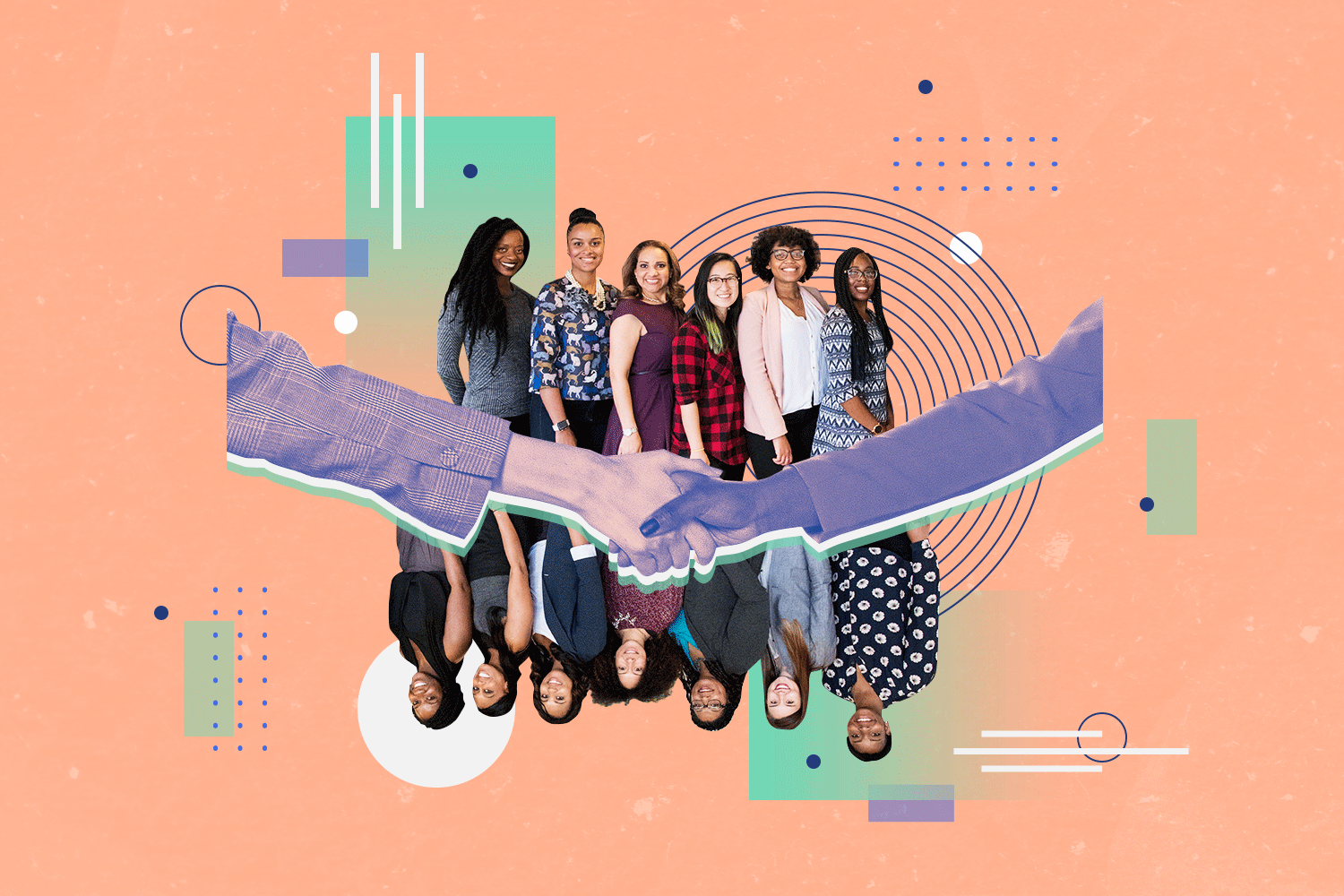Paving the Pathway to Our Dreams
Amplifying the voices of women of color in fundraising and philanthropy, as they share their personal thoughts on relevant topics.
By: Shauwea Hamilton, Executive Director of Bottom Line’s New York City region
I have always wanted to live a life without the burden of financial insecurity. This desire was my bricklayer, paving the way to my most important life decisions. While that may not have been the reason I went to college, it is the reason I finished – making me the first in my family to graduate with a bachelor’s degree. The U.S. Department of Labor’s Bureau of Labor Statistics tells us that college graduates on average earn approximately 67% more per year than people with only high school degrees.⑴ I had no knowledge of this research, but the data I did have brought me to the same conclusion – each career that would lead me to the front door of the “Solidly Middle Class” required this degree. I didn’t take the straightest or the shortest path to earning my bachelor’s degree, but I got there. If only someone had the knowledge to support me in a deep way through the many predictable hurdles I encountered (i.e., managing experiences at a Predominantly White Institution (PWI), making an affordable choice, and navigating bureaucracy), I might look upon my college years with greater enthusiasm, instead of the belief that I survived something.
So, it’s wild to me that I now lead an amazing team of professionals at Bottom Line who guide and support thousands of students just like me in achieving their goals and dreams. Our advisors are expert allies working in relentless support of each student’s ambitions. Awesome, right? Who doesn’t want someone to serve that role for them? The real question, though, is why do our students need this support in their efforts to attain a college degree and a mobilizing first career?
Our impact isn’t all about money. However, in our society, right now, higher earnings equal better mental and physical health.
Consider this harrowing statistic from EAB – about 90% of first-generation students from low-income backgrounds do not graduate within six years⑵. An EAB article reveals, “part of the problem is that [first-generation] students are likely unfamiliar with the “hidden curriculum” that determines students’ success in their first year of college, which includes navigating higher education bureaucracy and practicing good study skills.” A college degree paves the way for upward mobility, but the road to that degree is littered with these, and many more, predictable obstacles. Where is the equality in that?
Bottom Line is approaching our work from an equity lens. Our model is designed to fill in the knowledge gap for the “hidden curriculum,” as EAB describes. Our staff members spend a considerable portion of their time advising on those elements (i.e., achieving degree milestones and creating a solid “finals” study calendar), but they also spend significant time supporting with goal-setting, career exploration, and key life decisions. The gap they fill is tremendous, and the impact is extraordinary. With Bottom Line support, students are graduating at much higher rates than the national average (75% compared to 62%). Bottom Line has a particularly powerful impact on Black and Latinx participants. Black students who participate in Bottom Line’s Success program graduate at a rate that is more than 30 percentage points higher than the national average; Latinx/Hispanic Success participants graduate at a rate more than 10 percentage points higher. With these outcomes, we are fulfilling our mission to help first-generation students from low-income backgrounds get into college, graduate, and go far in life. From a system lens, we are concretely supporting the narrowing of our society’s racial equity gap.
I live out my dream every single day. I get to do that because of my parents’ sacrifice for my education, my sister who always challenged me to be as amazing as she thought I was, and the support of wonderful mentors who impacted my career early on.
Narrowing the gap translates to dollars and cents – bringing about economic mobility for those least likely to land at the door of the “Solidly Middle Class.” Concretely, Bottom Line students are projected to earn an average of $449,000 in additional lifetime income, approximately 65% more than their peers. Our impact isn’t all about money. However, in our society, right now, higher earnings equal better mental and physical health. When we all have that, we will have made real strides toward equality.
I live out my dream every single day. I get to do that because of my parents’ sacrifice for my education, my sister who always challenged me to be as amazing as she thought I was, and the support of wonderful mentors who impacted my career early on. Without them, I would not have persisted. Without them, I would not live with a dream come true – of a life without financial insecurity (ojalá). With Bottom Line, however, it would have been quicker, more joyful, and with even greater sense of community.
We are celebrating our 10th Anniversary in New York City this year, and through this decade have supported 1,000 students to their finish line of a bachelor’s degree. With the evidence of our impact, and support from our community, we will continue to work towards economic justice by supporting many more students in achieving their goals and paving their path to economic mobility in the decade to come.
⑴US Department of Labor. (2016.) Employment projections. Washington, DC: Author.
⑵90% of low-income, first-generation college students don’t graduate on time
Shauwea Hamilton, Executive Director of Bottom Line’s New York City region
Since 2018, Shauwea Hamilton has served as the Executive Director for Bottom Line’s New York City region. Bottom Line supports first-generation students from low-income backgrounds get into college, graduate, and go far in life.
As a first-generation college graduate, she understands the challenges students face as they seek access to and persistence through college. She believes fiercely in the mission of Bottom Line and is thrilled to have the opportunity to serve in this role.
Shauwea earned a Bachelor of Arts in Psychology from Rutgers University and a Master of Business Administration from Fordham University.
Content may not be reproduced without permission of Women of Color in Fundraising and Philanthropy.®





